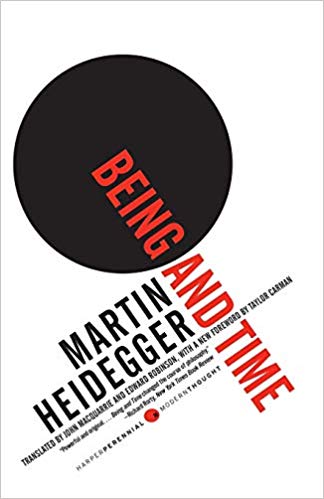
This one is easy for me. Philosophy is the most interesting thing that I have studied so far. I understand that I just made a rather broad statement given how philosophy has many branches, and can mean many different things (I briefly talk about the major branches of philosophy below).
So let me qualify my statement. I studied philosophy for four years and found myself inclined towards an analytical approach to the subject. I was interested in robust argumentation, looking for inconsistencies and finding refutations that are both, valid and sound. That is, leaving little to no room for mere conjecture. In other words, the argument should be such that its premises will persuade one that the conclusion is true.
Logic
A valid argument, therefore, is a list of premises from which, if the we accept that the premises are true, the conclusion logically follows.
This is the first form of logical argument construction in philosophy that one learns. One may dispute the truth value of the premises as much as they like. However, an argument would still be valid if the conclusion follows from the premises. Let’s take a simple example to show you how such arguments are constructed. Bear in mind, that you can have multiple premises. For the sake of clarity, let’s look at one with two premises.
P1. If I clean my room, then my mom will be happy with me
P2. I clean my room
C. Therefore, my mom is happy with me
Now of course none of the premises above might be true. I may never clean my room or it may take more than cleaning my room to make my mom happy. However, we can still accept that the argument above is valid. In that, the conclusion logically follows from the premises. The structure of the argument is what matters. Here it is in it’s logical form (syllogisms) called Modus Ponens.
Modus Ponens
P1. If p then q
P2. p
C. Therefore, q
Modus Tollens
Now, here is Modus Tollens, where tilde ‘—’ means ‘not’
P1. If p the q
P2. —q
C. Therefore, — p
The validity of both the arguments above can be verified using truth tables, which I won’t get into here. For an argument to be sound, the premises must also be true. If you think it ends there, you are mistaken. Logic in philosophy is densely complicated on a good day. It would take me a lifetime of study to understand it’s nuances. I found logic was one of the hardest classes I took. Maybe because I took it too soon and didn’t try as hard as I did in my latter years of college. In any case, I was much better at understanding words than I was at understanding symbols — logic has a ton of symbols.
Why I Mentioned Logic
I mentioned logic because it is an essential part of philosophy, and also wanted to show you the kind of philosophy that I became interested in, which somehow loosely geared me towards epistemology. I wasn’t really an expert in logic but I found myself largely assessing propositions and arguments through this style of reasoning — which emphasises accuracy, looking at specifics rather than abstract topics. Having said that however, I also inevitably touched on other branches of philosophy. It is hard not to do so.
Science/Ethics Dichotomy

So, for instance, I was required to write a Junior Thesis in my 3rd year and a Senior Thesis in my 4th year. For the latter, I wrote about Irrationality in Thought and Action. But let’s only look at my Junior Thesis.
I became interested in objectivity, science and ethics. From there, I found that a lot of philosophers argue that ethical statements cannot be objective in the same way that scientific statements are.

The Natural Sciences are typically viewed as an area of study that provides objective answers to what the external world is like; answers that are independent of perspective, context, personal or community biases, value commitments and other apparently subjective phenomena.
The objectivity in science applies to its methodology, claims and results, which are determined by observation and experimentation.
Through observation and experimentation, science provides information about the external or physical world that is, to some degree, accepted as truth about reality. Scientific statements are therefore considered to be statements of fact, where a fact is determined by the way the world is.
Following this line of reasoning, some philosophers argue that only scientific statements can be objective, where what is objective is independent of any and all perspective of the world. I argued against this claim, concluding that ethical statements can be objective, just not in the same way that scientific statements are.
Conclusion

The point is simply that, in attempting to find an answer, an assessment of truth that is independent of human conception, one inevitably involves human-dependent conceptions. This does not immediately render ‘objectivity’ impossible.
Once we shake strict notions of objectivity, we can also accept that what is ‘objective’ need not be only ‘factual’, ‘absolute’, or any version of an idea that attempts to describe reality completely independent of human thought. In other words, my arguments found that objectivity is not restricted to the realm of science.
For all that I considered in my paper, it could remain true that scientific and ethical statements are fundamentally different — different in terms of how we come to know them.
Although we might reasonably infer that there is at least one similarity in our ways of knowing the two types of claims; namely that our ways of knowing them are subject to human concepts and common epistemic norms. Based on the arguments I considered however, my paper saw no compelling reason to think that such a fundamental difference has to do with the objectivity of the claims.
Major Branches of Philosophy

Like I said above, the philosophical study is varied. Below are the major areas of philosophical inquiry. However, there exist other divisions of philosophy that deal with these major branches but are somewhat independent. Moreover, there are numerous other schools of thought and traditions in the philosophy that also come into play.
For now, let us look at two of the major branches. For more information on the several philosophical branches, camps, areas of study and such follow this link. You will find basic definitions through the provided link but for more detailed information you can look at The Stanford Encyclopaedia of Philosophy and other such websites.
1) Metaphysics
Metaphysics is hard to define and a rather broad and complicated branch of philosophy. It can loosely be summarised as an area of philosophy that primarily deals with the nature of reality. For instance, metaphysics looks at questions about being, time, knowledge, reality and so forth. Within metaphysics, there are two further branches:
The first, ontology, deals mainly with being, that is, the nature of being and reality. Broadly, ontology studies becoming, existence, reality and other such categories of being. Questions of this nature — like “do souls exist?” — fall under ontology. Whereas a metaphysical question would be “what physical laws would have to be true in order for souls to exist?” Philosophers differ in their study based on, in general, whether or not non-physical entities — like axioms, mathematical objects, the mind, universals — can be counted as being, existing, both or neither. Yeah, it’s hard.

In this way, ontology looks at how we can organise and categorise reality considering how different beings exist in relation to one another. One of the most famous works in this field (although also one of the most difficult to understand) is, Being and Time by Martin Heidegger.
Some major ontologists include:
2) Epistemology
The Stanford Encyclopaedia of Philosophy describes epistemology rather succinctly,
“Defined narrowly, epistemology is the study of knowledge and justified belief. As the study of knowledge, epistemology is concerned with the following questions:
1. What are the necessary and sufficient conditions of knowledge?
2. What are its sources?
3. What is its structure, and what are its limits?
As the study of justified belief, epistemology aims to answer questions such as:
1. How we are to understand the concept of justification?
2. What makes justified beliefs justified?
3. Is justification internal or external to one’s own mind?
Understood more broadly, epistemology is about issues having to do with the creation and dissemination of knowledge in particular areas of inquiry.”
— Steup, Matthias, “Epistemology“, The Stanford Encyclopedia of Philosophy (Winter 2018 Edition), Edward N. Zalta (ed.)
One of my favourite classes in college was Epistemology. This branch further influenced my Senior Thesis on irrationality. Specifically, irrational beliefs and actions.
Other Branches Include:
- Ethics: Dealing with moral values and human conduct, broadly speaking
- Logic: We already talked about
- Aesthetics: Deals with the philosophy of art and the concept of beauty.
If I Went Back in Time, Would I Do it Again?
Yes, absolutely. I could go back in time over and over again, and I would always choose philosophy. Philosophy has fundamentally shaped how I think and moulded how I approach problems. I am able to analyse a situation with an open mind, consider all possibilities, and use the information I have to find the best way forward.
Critical and analytical thinking skills, as well as always keeping an open mind, are a few major take aways that I will always cherish. Moreover, much to the annoyance of my friends and family, philosophy taught me to never take anything at face value but to always investigate and keep questioning, including your own beliefs — always find support (or evidence) for your hypothesis and ensure that you consider potential flaws in your argument. Finally, philosophy also taught me to acknowledge and accept mistakes in my position. In other words, accept when I might be wrong.
Here are a few of my favourite classes taken during college:
- Ethical Theory
- Philosophy of Mind and Cognitive Science
- Scientific Revolutions
- Epistemology
- Existentialism
- Environmental Ethics
- Rationalism & Empiricism
So, what’s the most interesting thing you’ve studied for far?
Need some extra pocket money? Download StuCred now for real-time, interest-free loans!






